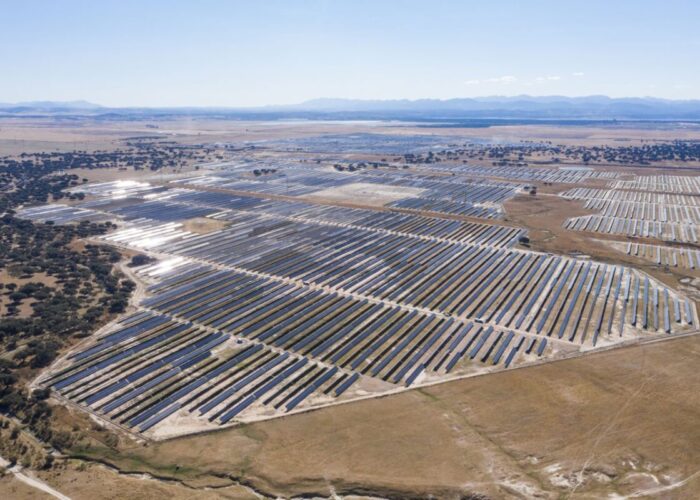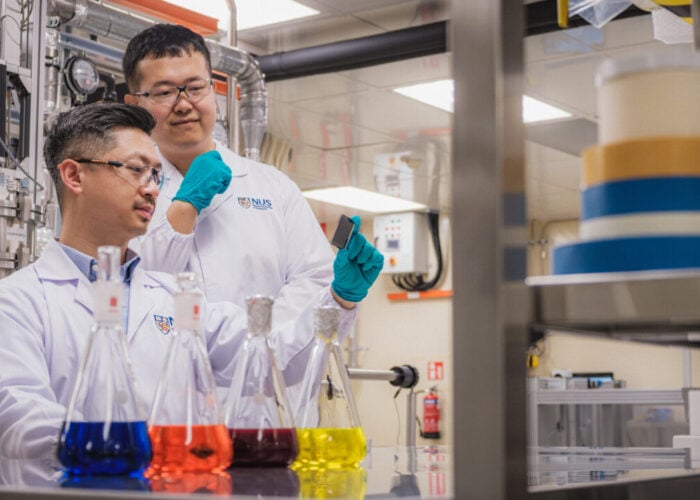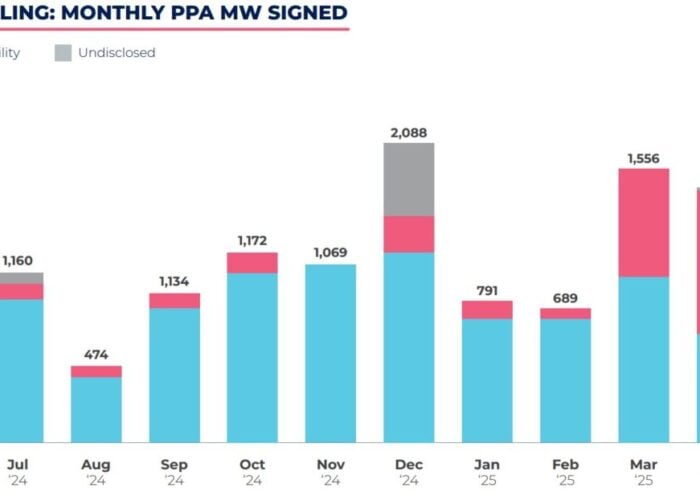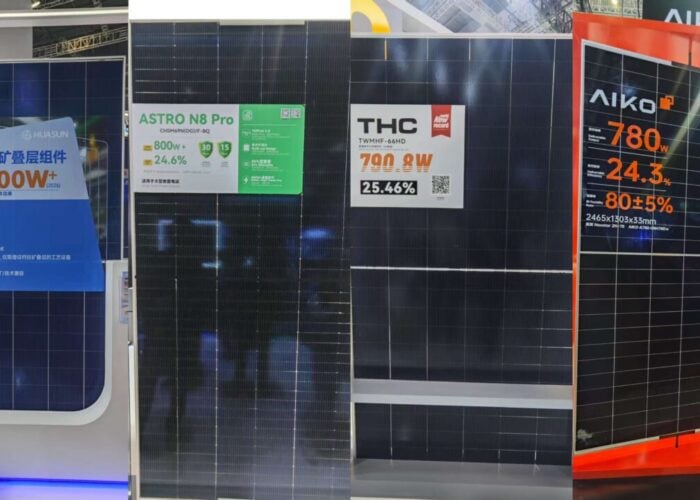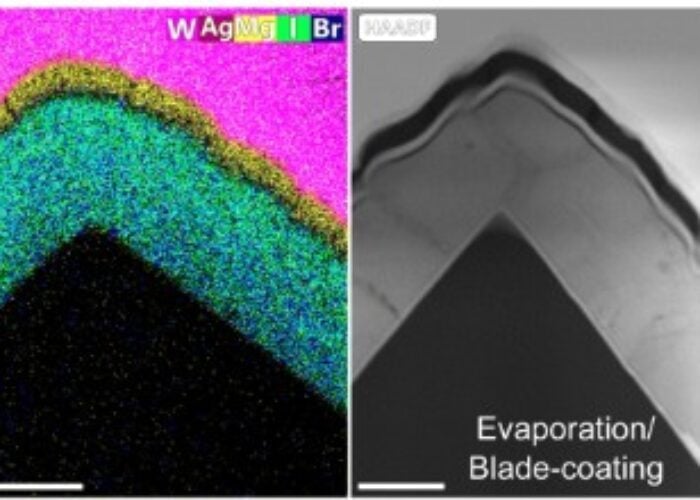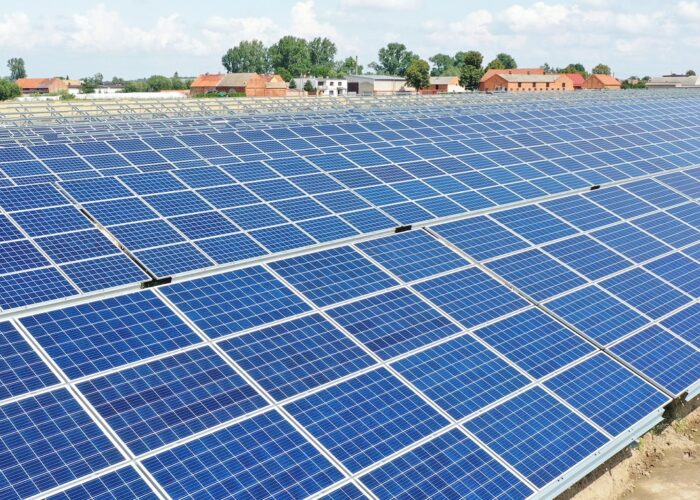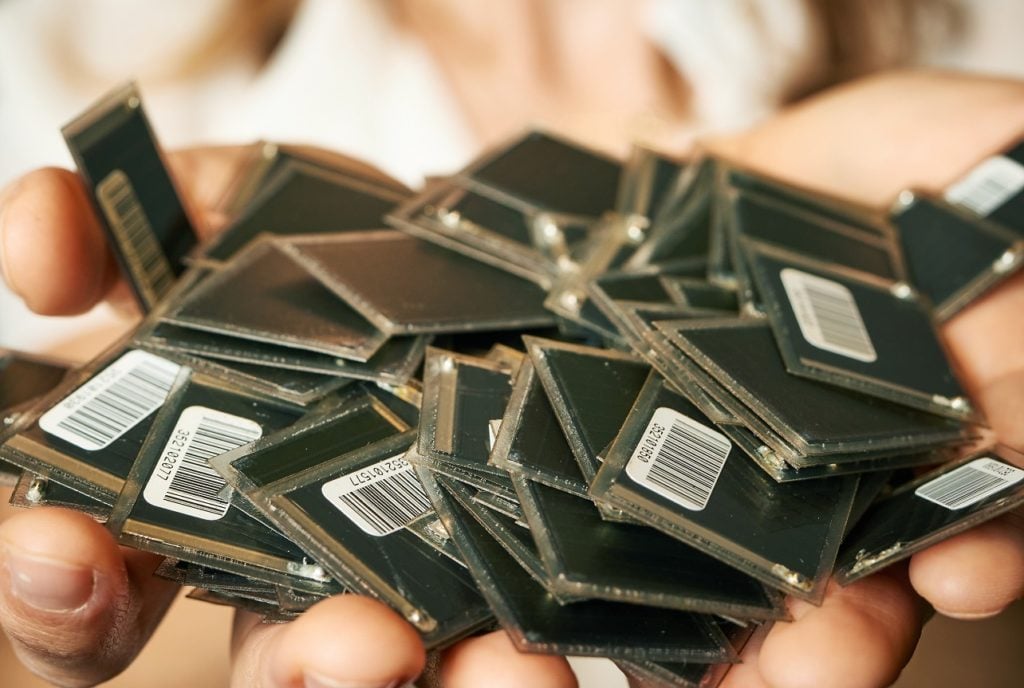
Perovskite-based PV manufacturer Saule Technologies said its cells have achieved a 25.5% efficiency for internet of things (IoT) applications.
Confirmed by research organisation the Fraunhofer Institute for Solar Energy Systems ISE, the efficiency was reached following testing under 1000 lux illumination by a cold white LED.
Unlock unlimited access for 12 whole months of distinctive global analysis
Photovoltaics International is now included.
- Regular insight and analysis of the industry’s biggest developments
- In-depth interviews with the industry’s leading figures
- Unlimited digital access to the PV Tech Power journal catalogue
- Unlimited digital access to the Photovoltaics International journal catalogue
- Access to more than 1,000 technical papers
- Discounts on Solar Media’s portfolio of events, in-person and virtual
Poland-based Saule Technologies said its flexible perovskite devices are well suited for powering electronic devices in indoor, low light intensity conditions, making them a solution for various IoT applications.
The company, which has previously released solar-powered electronic price labels for retailers, has transferred the cell manufacturing process from the research and development stage to a full-scale production line.
“Our first factory already prints perovskite devices suitable for the IoT sector. Now, when we have successfully entered the commercialisation phase, we are going to scale up our business,” said Olga Malinkiewicz, co-founder and CTO at Saule Technologies.
The cell efficiency milestone comes months after Saule opened its first perovskite cell production line, which allows for the replication of its laboratory processes in a fully automated manner. At the time of the factory inauguration in May, the company said it had started work on establishing an industrial line that could have a capacity of up to 100MW.
Alongside IoT applications, Saule touted the potential of its perovskite cells for solar-powered vehicles, carports and building-integrated PV. Following a collaboration announced in 2018 with Skanska, the construction company is now pioneering a method of covering office building exteriors with Saule’s semi-transparent perovskite solar cells on a commercial scale.

